Presentation
Mar 07 2024
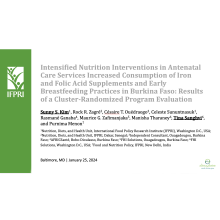
Intensified Nutrition Interventions in Antenatal Care Services Increased Consumption of Iron and Folic Acid Supplements and Early Breastfeeding Practices in Burkina Faso: Results of a Cluster-Randomized Program Evaluation
This slide deck was part of a presentation given by the International Food Policy Research Institute and Alive & Thrive during a post-graduate course lecture at Johns Hopkins University on January 25, 2024.
Presentation
Mar 04 2024
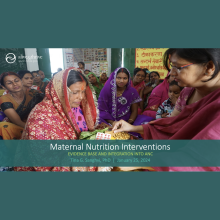
Maternal Nutrition Interventions: Evidence Base and Integration Into ANC
Brief
Jul 16 2022
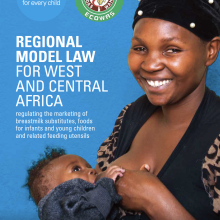
Regional Model Law for regulating the marketing of BMS
As part of the efforts to protect breastfeeding and save lives, UNICEF, WHO, Alive & Thrive, HKI and IBFAN, in collaboration with the West African Health Organization (WAHO), have developed a regional model law for regulating the marketing of breastmilk substitutes, foods for infants and youn
Guide/Manual
Feb 09 2022
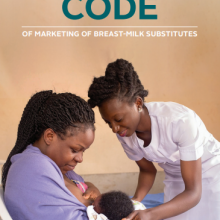
A Quick Guide: The International Code of Marketing for Breast-milk Substitutes
Updated February 2022!
This quick guide summarizes the International Code of Marketing of Breast-milk Substitutes (The Code) and relevant resolutions of the World Health Assembly that help protect breastfeeding around the globe.
Brief, Handout
Oct 28 2020
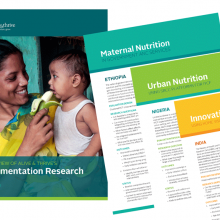
An overview of Alive & Thrive's implementation research
Alive & Thrive's implementation research spans its program areas, seeking to answer "how" to implement effective interventions and policies. Active studies are detailed in the attached documents.
Journal article
Jul 16 2020

Predictors of exclusive breastfeeding and consumption of soft, semi-solid or solid food among infants in Boucle du Mouhoun, Burkina Faso: A cross-sectional survey (Cresswell, J., 2017. PLOS ONE)
Many mothers have low levels of knowledge regarding breastfeeding and demonstrate poor practices, according to this cross-sectional survey (n = 2288) of a representative sample of women aged 15–49 years with at least one live birth in the past year conducted during June and July 2015 in the Boucl

